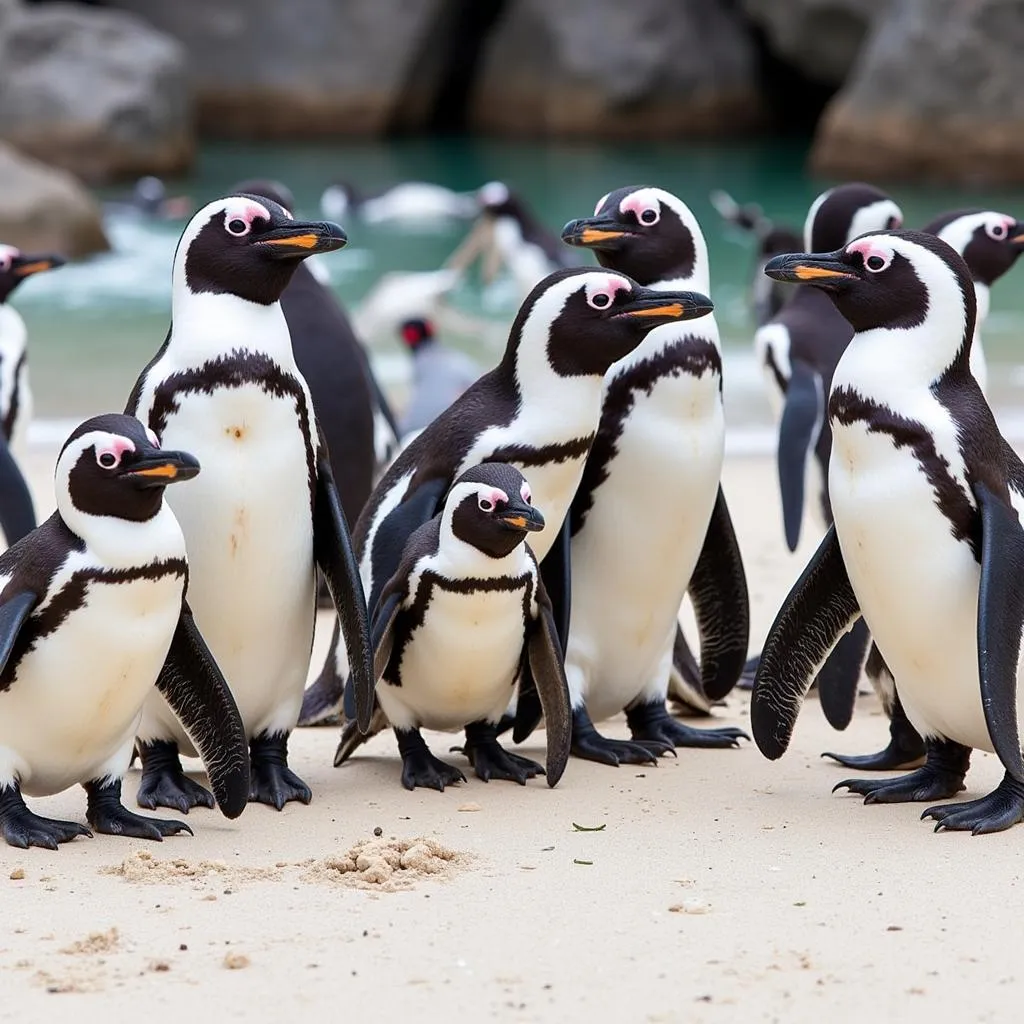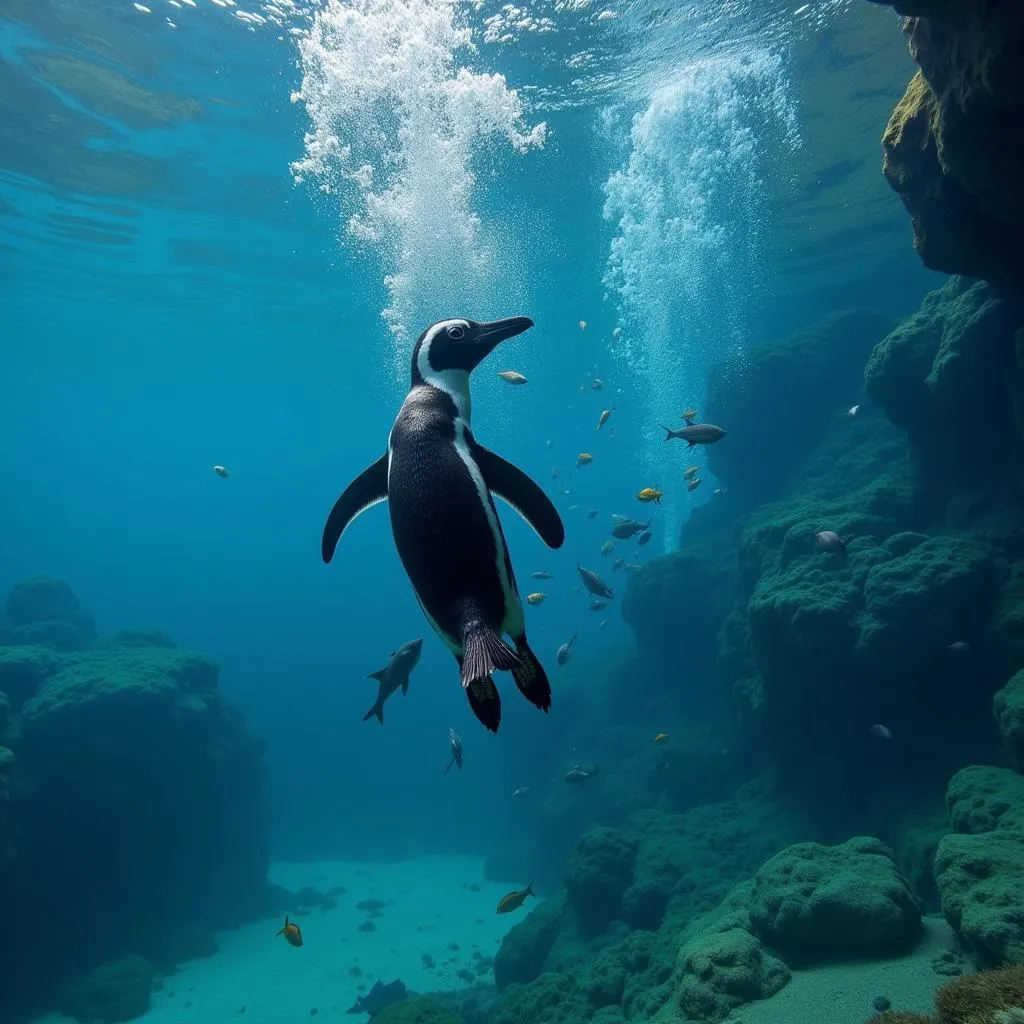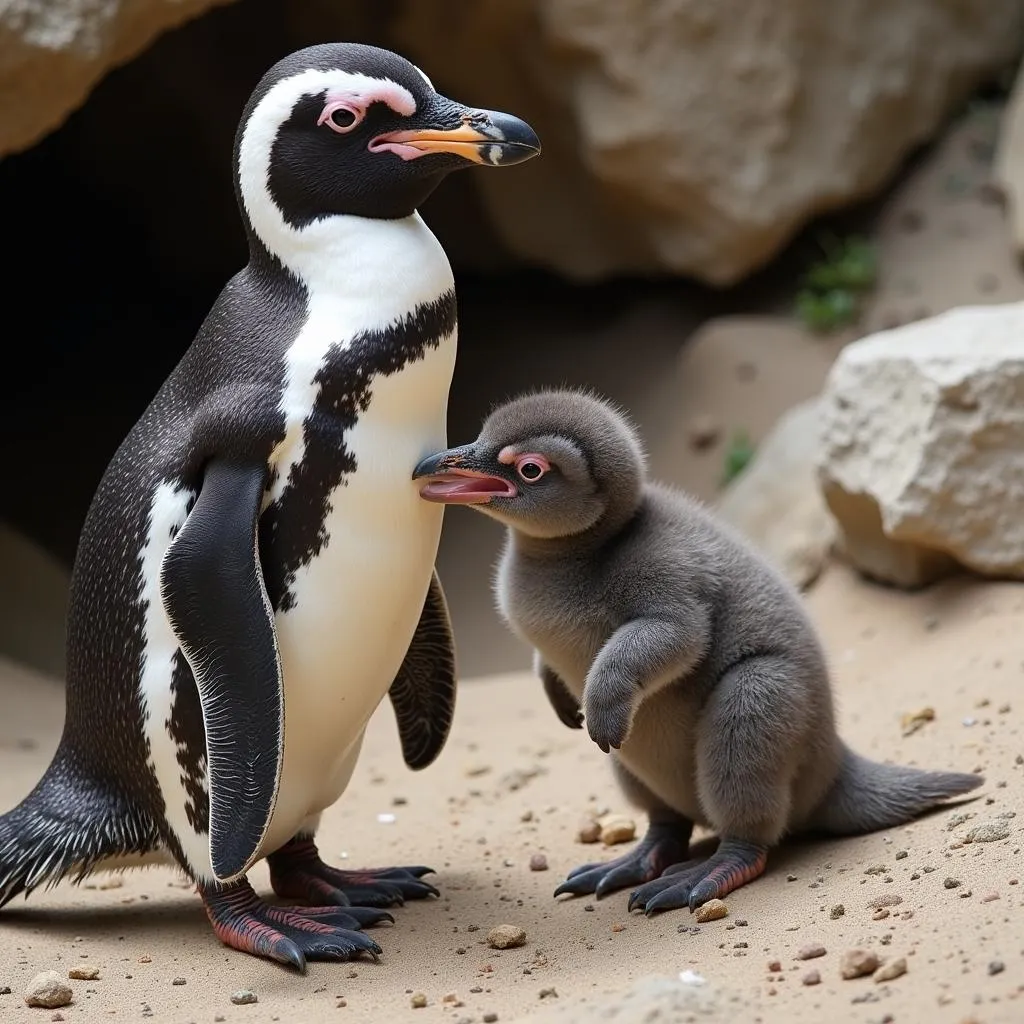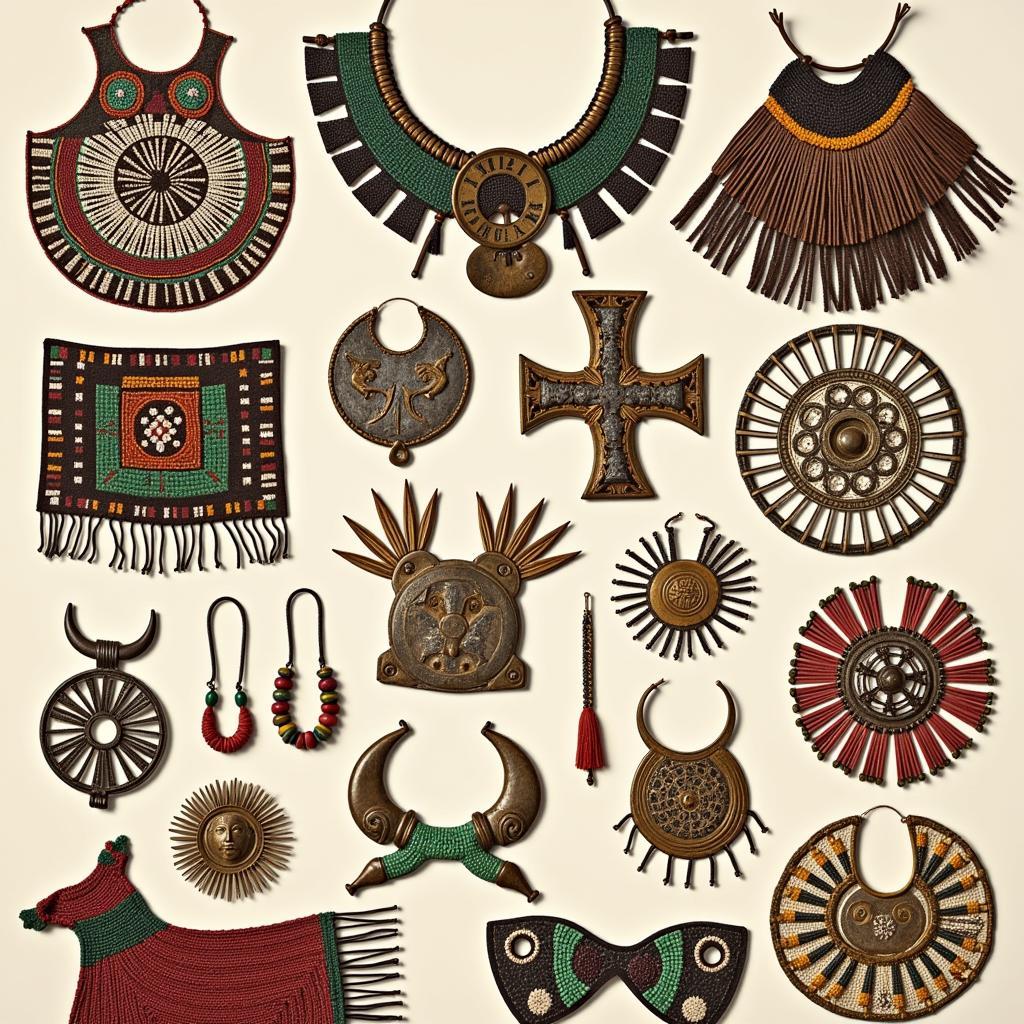African Penguins: Everything You Need to Know About These Charming Birds
The African Penguin, also known as the black-footed penguin, is a charismatic and endangered species found only along the coasts of Namibia and South Africa. These adorable birds, with their distinctive black and white plumage and comical waddle, are a true icon of the African coast.
A Closer Look at African Penguins
African penguins are small, flightless seabirds that spend most of their lives in the water. They have a streamlined body shape and dense, waterproof feathers that help them glide through the ocean with ease. They are highly social animals and live in large colonies, with up to a million birds breeding together on some islands.
What Makes African Penguins Unique?
These birds are unique in many ways, including:
- Black and white plumage: Their distinctive black and white feathers help them blend in with the water and rocks, providing camouflage from predators.
- Strong swimmers: Their wings have evolved into powerful flippers that propel them through the water at speeds up to 20 km/h.
- Vocal communication: African penguins communicate with each other through a variety of calls, including a loud braying sound used to attract mates.
- Strict monogamy: They form strong pair bonds and remain together throughout their lives, raising their chicks together.
Where Do African Penguins Live?
African penguins are found only along the coasts of Namibia and South Africa, primarily on islands and rocky shores. They prefer areas with cold, nutrient-rich waters, which provide them with an abundance of food.
What Do African Penguins Eat?
African penguins are carnivores and feed mainly on small fish, squid, and crustaceans. They use their sharp beaks to catch their prey and their strong flippers to help them dive deep underwater.
The Challenges Facing African Penguins
African penguins are facing a number of challenges, including:
- Climate change: Rising sea temperatures and changes in ocean currents are impacting the availability of their prey.
- Overfishing: Human fishing activities are depleting the fish stocks that African penguins rely on.
- Pollution: Oil spills and plastic debris pose serious threats to these birds.
- Habitat loss: Coastal development and urbanization are reducing the amount of suitable breeding habitat available.
“The African penguin is a true icon of the African coast, but their future is uncertain,” says Dr. Maya Thompson, a leading penguin researcher. “We need to take action to protect these remarkable birds from the threats they face.”
How to Help African Penguins
There are a number of ways you can help protect African penguins:
- Support conservation organizations: Many organizations work to protect African penguins through research, habitat restoration, and education programs.
- Reduce your carbon footprint: Climate change is a major threat to penguins, so reducing your emissions can help mitigate the impact.
- Choose sustainable seafood: By avoiding overfished species, you can help ensure that penguins have enough food.
- Reduce plastic waste: Plastics pose a serious threat to penguins and other marine animals.
Frequently Asked Questions
Q: Are African penguins endangered?
A: Yes, African penguins are classified as endangered by the International Union for Conservation of Nature (IUCN).
Q: How long do African penguins live?
A: African penguins can live for up to 20 years in the wild.
Q: What is the biggest threat to African penguins?
A: Climate change, overfishing, and pollution are the biggest threats to African penguins.
Q: What can I do to help African penguins?
A: You can help African penguins by supporting conservation organizations, reducing your carbon footprint, choosing sustainable seafood, and reducing plastic waste.
Q: Where can I see African penguins in the wild?
A: African penguins can be seen at various locations along the coasts of Namibia and South Africa, including Boulders Beach, Betty’s Bay, and Stony Point.
Conclusion
African penguins are amazing creatures that play a vital role in the marine ecosystem. Their unique adaptations and social behavior make them a joy to watch, but their future is uncertain. By understanding the challenges they face and taking action to protect them, we can help ensure that these charming birds continue to thrive for generations to come.
 African penguin family colony at Boulders Beach
African penguin family colony at Boulders Beach
 African penguin diving for fish
African penguin diving for fish
 African penguin chick being fed
African penguin chick being fed
Are you passionate about protecting African penguins? Want to learn more about their incredible lives? South African penguins is a great resource for information on these fascinating birds.
